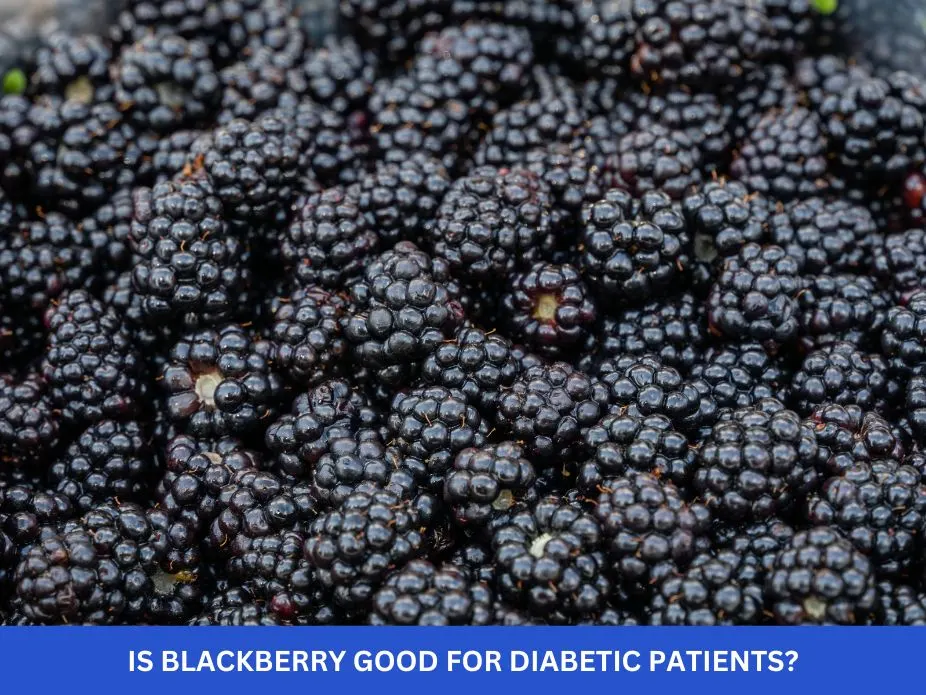Table of Contents
- Planning Pregnancy After Miscarriage with Diabetes
- Diabetes and Pregnancy: A Guide to Healthy Conception After Loss
- Understanding Your Risk: Diabetes, Miscarriage & Future Pregnancies
- Conceiving Safely with Diabetes After a Miscarriage: Tips and Advice
- Is Pregnancy After Miscarriage Possible with Diabetes? A Comprehensive Guide
- Frequently Asked Questions
- References
Experiencing a miscarriage is devastating, and the journey to trying again can feel especially daunting, particularly when facing pre-existing conditions like diabetes. If you’re hoping to conceive after a miscarriage while managing diabetes, you’re not alone. This guide, Diabetes and Pregnancy After Miscarriage: A Guide to Healthy Conception, is designed to support you every step of the way. We’ll explore strategies for optimizing your health, managing your blood sugar levels, and increasing your chances of a healthy pregnancy. Let’s navigate this path together and empower you with the knowledge you need.
Planning Pregnancy After Miscarriage with Diabetes
Experiencing a miscarriage is devastating, and the desire to conceive again can be both exciting and daunting, especially when managing diabetes. In India alone, approximately 2.5 million cases of gestational diabetes occur annually, highlighting the prevalence of this condition and the importance of careful planning for future pregnancies. For women with pre-existing diabetes or those who experienced gestational diabetes in a previous pregnancy, conceiving and maintaining a healthy pregnancy requires meticulous attention to blood sugar levels and overall health.
Optimizing Your Health Before Conception
Before attempting to conceive again, it’s crucial to achieve optimal blood sugar control. This involves working closely with your doctor or endocrinologist to adjust your diabetes management plan, which may include medication adjustments, dietary changes, and increased monitoring of blood glucose levels. Regular exercise, a balanced diet rich in fruits, vegetables, and whole grains, and maintaining a healthy weight are also vital components of pre-conception care. Prioritizing your health will significantly improve your chances of a healthy pregnancy. Understanding how diabetes affects fertility is a crucial first step in this process.
Managing Diabetes During Pregnancy
Once pregnant, maintaining tight blood sugar control becomes even more critical to prevent complications for both you and your baby. Frequent blood glucose monitoring, adherence to your prescribed treatment plan, and regular check-ups with your healthcare provider are essential. Remember to discuss any concerns or questions you may have about managing your diabetes during pregnancy with your doctor. They can provide personalized advice and support tailored to your specific needs. Consider seeking support groups or connecting with other women in India who have successfully managed diabetes during pregnancy for valuable insights and encouragement. It’s also important to be aware of the possibility of developing diabetes after pregnancy, as discussed in Can You Develop Diabetes After Pregnancy?
Seeking Expert Guidance in India
Navigating pregnancy with diabetes requires a multidisciplinary approach. In India, accessing quality healthcare, including specialists in endocrinology and obstetrics, is crucial for a positive outcome. Don’t hesitate to seek support from your healthcare team and explore resources available in your local community. Remember, a healthy and successful pregnancy is attainable with diligent planning and the right support system.
Diabetes and Pregnancy: A Guide to Healthy Conception After Loss
Experiencing a miscarriage is devastating, and the journey to a healthy pregnancy can feel even more challenging when managing diabetes. For women in India and other tropical countries, navigating this path requires careful planning and expert medical guidance. The impact of diabetes on fertility is a significant concern, particularly given that 61% of people with diabetes are within the prime reproductive ages of 20-64 years, according to the International Diabetes Federation.
Understanding the Challenges
Diabetes can affect fertility in several ways, including irregular ovulation and increased risk of miscarriage. Pre-existing conditions like gestational diabetes further complicate pregnancy. In tropical climates, factors like heat and humidity can add further stress on the body, making meticulous diabetes management even more critical. Careful blood sugar control is paramount before, during, and after conception.
Steps to a Healthy Pregnancy
Working closely with an endocrinologist and obstetrician is crucial. A comprehensive preconception plan should include optimizing blood glucose levels, achieving a healthy weight, and addressing any underlying health complications. Regular checkups, including HbA1c testing, are essential to monitor diabetes control. Furthermore, adopting a healthy diet rich in fruits, vegetables, and whole grains, common and accessible in many Indian and tropical regions, is crucial. Regular exercise, tailored to your individual needs and the climate, is also vital. As you plan for pregnancy, understanding how managing diabetes may change as you age is also important, as outlined in Managing Diabetes as You Age: Challenges and Solutions.
Seeking Support in Your Community
Remember, you are not alone. Many support groups and resources exist within India and other tropical countries to provide guidance, emotional support, and a sense of community for women navigating diabetes and pregnancy after loss. Reaching out to healthcare professionals and support networks is a vital step towards a healthy and successful pregnancy. Don’t hesitate to seek the help you need—your journey towards parenthood deserves the best possible care and support. It’s also important to remember that while diabetes can impact pregnancy, it is possible to have a healthy pregnancy and baby. Concerns about diabetes in newborns are addressed in Can a Newborn Have Diabetes?
Understanding Your Risk: Diabetes, Miscarriage & Future Pregnancies
Experiencing a miscarriage is devastating, and the prospect of future pregnancies can be daunting, especially if you have diabetes. For women in India and tropical countries, understanding the interplay between diabetes, miscarriage, and subsequent conceptions is crucial for achieving a healthy pregnancy. The risk is heightened because of the prevalence of gestational diabetes and Type 2 diabetes in these regions.
Diabetes and Miscarriage: The Connection
Research shows a correlation between pre-existing diabetes (Type 1 or Type 2) and a higher risk of miscarriage. Poorly controlled blood sugar levels can negatively impact fetal development during the critical early stages of pregnancy, leading to complications. Furthermore, women who develop gestational diabetes, a condition where glucose intolerance develops during pregnancy, also face increased miscarriage risks. This is particularly important to consider in regions like India where dietary habits and lifestyle factors can contribute to higher rates of gestational diabetes. Understanding the link between diabetes and obesity Understanding the Link Between Diabetes and Obesity is also crucial in managing this risk.
Planning for a Healthy Pregnancy
If you have a history of miscarriage and diabetes, meticulous pre-conception planning is essential. This involves working closely with your doctor to optimize your blood sugar control through diet, exercise, and medication if necessary. In tropical climates, maintaining hydration and managing heat stress are also crucial factors to consider during pregnancy planning. Early and regular prenatal care is paramount. Regular monitoring of blood glucose levels will help to mitigate potential risks. Remember, children born to mothers with gestational diabetes are 7x more likely to develop Type 2 diabetes later in life; proactive management is key to reducing this risk for both mother and child. For those planning travel during pregnancy, it’s important to consider the extra precautions outlined in our guide on Traveling with Diabetes: Essential Tips for a Safe & Healthy Journey.
Seeking Support and Guidance
Navigating the emotional and physical challenges of pregnancy after a miscarriage requires immense strength. Don’t hesitate to seek support from family, friends, support groups, and healthcare professionals. In India and other tropical countries, access to quality healthcare and reproductive support services varies; proactively finding a knowledgeable doctor who understands your specific needs and the challenges specific to your region is critical for a healthy pregnancy journey.
Conceiving Safely with Diabetes After a Miscarriage: Tips and Advice
Experiencing a miscarriage is devastating, and the prospect of conceiving again, especially with pre-existing diabetes, can feel daunting. However, with careful planning and management, a healthy pregnancy is achievable. Women with diabetes face a higher risk of complications, including a 40% increased risk of heart disease compared to men with diabetes. This underscores the critical need for proactive health management before and during pregnancy. Understanding and managing your diabetes effectively is paramount.
Optimizing Preconception Health
Before attempting conception, work closely with your endocrinologist and obstetrician. Tight glycemic control is essential. This involves regular blood sugar monitoring, adhering to your prescribed insulin or medication regimen, and maintaining a healthy diet. In tropical climates, consider the impact of heat and humidity on blood sugar levels and adjust your management plan accordingly. Regular exercise, tailored to your individual needs and the climate, is also crucial for overall well-being and diabetes management. For more information on effective diabetes management, check out 10 Proven Tips for Effective Diabetes Management.
Seeking Specialized Care
In India and other tropical countries, access to specialized prenatal care varies. Actively seek out doctors experienced in managing diabetes in pregnancy. Discuss your medical history, including the miscarriage, openly and honestly. A multidisciplinary approach involving a dietitian and potentially a cardiologist can provide comprehensive support and address any specific concerns. Early and consistent prenatal care is essential for minimizing risks. To learn more about preventing long-term complications, please see our article on How to Prevent Long-Term Complications of Diabetes: Easy Tips.
Prioritizing Well-being
Remember that mental and emotional well-being are also critical. Support groups, counseling, or even traditional practices prevalent in your region can provide valuable emotional support during this challenging time. Focus on self-care and prioritize your physical and mental health throughout your preconception journey. By taking these proactive steps, you can significantly increase your chances of a healthy and successful pregnancy.
Is Pregnancy After Miscarriage Possible with Diabetes? A Comprehensive Guide
Experiencing a miscarriage is devastating, and the prospect of future pregnancies can feel daunting, especially for women with diabetes. Many women in India and across tropical countries grapple with this complex issue. The good news is that pregnancy after a miscarriage is possible, even with diabetes, but careful management is crucial. Diabetes, particularly if poorly controlled, increases the risk of complications during pregnancy, including those related to kidney health. Nearly 30% of people with diabetes develop diabetic nephropathy, a type of kidney disease. This highlights the importance of proactive healthcare.
Managing Diabetes for Healthy Conception
Successfully conceiving and carrying a healthy pregnancy with diabetes requires a strong focus on blood sugar control. This involves meticulous monitoring, adherence to a prescribed diet, regular exercise, and consistent medication as directed by your endocrinologist and obstetrician. Working closely with a healthcare team familiar with managing diabetes in pregnancy is essential. Regular check-ups are vital to monitor your blood glucose levels, blood pressure, and kidney function. In India and other tropical regions, access to quality healthcare may vary, so proactive planning and seeking expert advice are key. Understanding how diabetes can affect your menstrual cycle is also important; you can learn more by reading our article on Does Diabetes Affect Periods?
Addressing Concerns and Seeking Support
Open communication with your healthcare provider is vital. Discuss your concerns, medical history, and family history of diabetes. Consider joining support groups, either in person or online, to connect with other women facing similar challenges. These groups offer invaluable emotional support and practical advice, particularly relevant within the cultural context of Indian and tropical communities. Remember, you are not alone. With proper planning and medical supervision, a healthy pregnancy after miscarriage is achievable, even with diabetes. Dietary considerations are crucial, and you might find our guide on Can I Have Pizza with Gestational Diabetes? helpful in understanding food choices during pregnancy.
Taking the Next Step
Consult with your doctor or a diabetes specialist to discuss your individual needs and create a personalized plan for preconception care. Early intervention and meticulous management of your diabetes significantly increase your chances of a healthy pregnancy. Don’t hesitate to seek the support you need to navigate this journey.
Frequently Asked Questions on Diabetes and Pregnancy After Miscarriage
Q1. What is the most important thing to consider before trying to conceive if I have diabetes and have experienced a miscarriage?
Before trying to conceive again, it’s crucial to optimize your pre-conception health. This involves working closely with your doctor to achieve optimal blood sugar control through medication, diet, and exercise. A healthy weight is also important.
Q2. How is diabetes managed during pregnancy after a miscarriage?
Maintaining tight blood sugar control throughout your pregnancy is critical to minimizing risks for both you and your baby. This requires frequent blood sugar monitoring and close adherence to your prescribed treatment plan. Regular checkups with your healthcare team are essential.
Q3. What kind of medical support should I seek for diabetes management during pregnancy after a miscarriage?
A multidisciplinary approach is best. You’ll likely need a team including an endocrinologist and an obstetrician. Open communication with your healthcare providers is vital, and having access to support groups can be invaluable.
Q4. What are the potential challenges in managing diabetes during pregnancy after a miscarriage?
Managing diabetes during pregnancy always presents challenges. After a miscarriage, emotional well-being can be particularly vulnerable. Access to quality healthcare may also vary depending on location and resources. Diligent planning and a strong support system are key to navigating these challenges.
Q5. Is it possible to have a healthy pregnancy with diabetes after a miscarriage?
Yes! While diabetes increases the risk of complications, a healthy pregnancy is absolutely attainable with meticulous planning, proactive management of your diabetes, and the right support system. Working closely with your healthcare team will significantly improve your chances of a successful pregnancy.
References
- A Practical Guide to Integrated Type 2 Diabetes Care: https://www.hse.ie/eng/services/list/2/primarycare/east-coast-diabetes-service/management-of-type-2-diabetes/diabetes-and-pregnancy/icgp-guide-to-integrated-type-2.pdf
- Diabetes Mellitus: Understanding the Disease, Its Diagnosis, and Management Strategies in Present Scenario: https://www.ajol.info/index.php/ajbr/article/view/283152/266731




